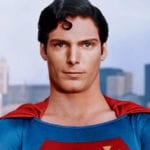 Weird Stuff
Weird Stuff  Weird Stuff
Weird Stuff  Animals
Animals 10 Inspiring Tales of Horses Being Human
 Mysteries
Mysteries Top 10 Haunting Facts About the Ghost Ship MV Alta
 History
History 10 Surprising Stories About the Texas Rangers
 Humans
Humans 10 Philosophers Who Were Driven Mad by Their Own Theories
 Miscellaneous
Miscellaneous 10 Video-Game-Worthy Weapons and Armors from History
 Weird Stuff
Weird Stuff 10 Psychics Who Accurately Predicted Wartime Events
 The Arts
The Arts 10 Pieces of Art Inspired by a Broken Heart
 Health
Health 10 Science Fiction-Sounding New Medical Treatments
 History
History 10 Surprising Facts About the Father of Submarine Warfare
 Weird Stuff
Weird Stuff 10 Times Real Laws Were Based on Bizarre Hypotheticals
 Animals
Animals 10 Inspiring Tales of Horses Being Human
 Mysteries
Mysteries Top 10 Haunting Facts About the Ghost Ship MV Alta
Who's Behind Listverse?

Jamie Frater
Head Editor
Jamie founded Listverse due to an insatiable desire to share fascinating, obscure, and bizarre facts. He has been a guest speaker on numerous national radio and television stations and is a five time published author.
More About Us History
History 10 Surprising Stories About the Texas Rangers
 Humans
Humans 10 Philosophers Who Were Driven Mad by Their Own Theories
 Miscellaneous
Miscellaneous 10 Video-Game-Worthy Weapons and Armors from History
 Weird Stuff
Weird Stuff 10 Psychics Who Accurately Predicted Wartime Events
 The Arts
The Arts 10 Pieces of Art Inspired by a Broken Heart
 Health
Health 10 Science Fiction-Sounding New Medical Treatments
 History
History 10 Surprising Facts About the Father of Submarine Warfare
10 Videos About People With Incredibly Weird Jobs
There’s more than one way to earn a paycheck . . . and some are kind of odd. In this list, we’re looking at short videos that profile people who’ve chosen some slightly strange vocations. Some set off explosives, while others mine ice in the mountains or even kill people for living. While some work in an office and others prefer the great outdoors, they all have one thing in common. They’ve all got bills to pay.
10Font Men
Grab a magazine. Open a book. Pick up a box of cereal, a stick of deodorant, or a bottle of bleach. What do these things have in common? They’re all covered in words. Of course, the letters are all just a tad different. The tagline on that movie poster isn’t quite the same as the brand name on that can of corn. Why? Because they’re in different fonts.
Fonts are everywhere you look. Giant ones, tiny ones, fonts that are straightforward and spartan, and others that look squiggly and goofy. But who designs all these fonts? Who’s getting paid to plaster newspapers and billboard with brand new typefaces?
Up until recently, one of the biggest font companies on the planet was Hoefler & Frere-Jones, headed by the eponymous Jonathan Hoefler and Tobias Frere-Jones. Though the two had a falling-out in 2014, there was a time when they worked for clients like Delta Air Lines, GQ, Nike, and The New York Times. They created the font Barack Obama used in his 2008 campaign, and they designed the letters adorning books by Martha Stewart and Junot Diaz.
Shortly before the big breakup, a New York production company called Dress Code interviewed the two inventors, both of whom revealed a few tricks of the trade. In this short documentary (which was chosen for 2014’s SXSW Film Festival), Hoefler and Frere-Jones discuss which three letters are vital to creating a new font, how pop culture references help them hone their look, and how lowercase “t” is a troublesome little letter.
9Kaboom!
Rich and Dee Gibson might have the greatest job in the world. They blow stuff up for a living. Even better, they blow stuff up, and nobody gets hurt. Instead, spectators gasp in awe as planes strafe the ground with fake machine gun fire and beautiful Apocalypse Now explosions rattle the ground.
The Gibsons have been setting off bombs for over 30 years, right up until their recent retirement in 2013. They sort of retired. Every year, when the Ilopango Airshow in El Salvador rolls around, these two get to work, planning bigger and better explosions. And according to Rich, whenever they push the big red button, “It seems like the whole world is bouncing under my feet.”
The division of labor is pretty simple. Dee comes up with cool ideas, Rich figures out how to make it all work, and they both take turns pressing the plunger. It’s all in a day’s work for the Gibsons, who met while skydiving and were both fascinated with things that go “boom.” Since that fateful day, they’ve been traveling the world, going from air show to air show, mesmerizing audiences with the power of fire and leaving fans with a feeling of absolute awe.
8‘NASA’s Staff Sniffer’
When we hear “NASA,” our minds immediately jump to astronauts and those bright minds in mission control. But thousands of others behind the scenes work to make sure space missions go off without a hitch. One of those people is George Aldrich, and George isn’t your traditional NASA type. He doesn’t build space shuttles, study galaxies, or train the folks headed up to the International Space Station. Instead, George Aldrich smells stuff.
More accurately, George sniffs everything that NASA decides to send into space. His job is to ferret out “obnoxious odors,” and really, it’s one of the most important jobs in the whole space program. Here on Earth, if there’s a foul stench, you can just open a door or a window, and voila, problem solved. That’s not an option up in space, and the wrong smell might annoy astronauts or even cause them to become sick. George is their first line of defense against all things pungent and putrid.
The item in question is placed inside a chamber, and then a scientist sucks up some of the surrounding air with a syringe. The air is then injected into a facemask, which George puts on before taking a great big whiff. Thanks to his highly trained nose, George can determine what odors might irritate the astronauts and which ones aren’t really a big deal. It’s probably a pretty stinky job, but hey, somebody’s got to do it.
7The Hands Of Hollywood
If you’re a fan of TV shows from the ‘70s and ‘80s, chances are good that you’ve seen Steve Hershon before. While he was never a leading man, Hershon appeared in programs like Barnaby Jones, Simon & Simon, Laverne & Shirley, and Airwolf. In fact, he occasionally played some pretty important characters, but you wouldn’t recognize his face. His hands, however, might look a little familiar.
If you needed an insert shot of a man holding a business card, someone picking a lock, or a guy with his finger on a trigger, Henson was the actor to call. Known as the “Hands of Hollywood,” Hershon doubled for actors like Bill Bixby on The Incredible Hulk and David Hasselhoff on Knight Rider. In this short video by Ryan Palmieri, Herson explains how he got the gig, the tricks of the trade (like wearing gloves), and how a tragic accident ended his career prematurely.
But don’t feel sorry for him. Thanks to all the hours he worked back in his acting days, Herson receives a pretty sweet pension each month. He might not have become a superstar, but he lent a hand to many big projects, and he had a lot of fun.
6Meet Casanova, Hollywood’s Premier Party Robot
These days, David Leventhal (or “Double Black Diamond Dave,” as he calls himself) makes a living by renting houses. But once upon a time, Leventhal lived a very different life. In the 1980s, he entertained at some of the wildest parties in Los Angeles . . . with the help of his sci-fi sidekick. Whenever Leventhal showed up at a red carpet event, he was always escorted by his “alter ego,” Casanova the Party Robot.
In the ‘80s, pop culture was obsessed with robots. There were TV shows (like Transformers), movies (like Short Circuit, The Terminator, and RoboCop), and toys (like 2-XL and, well, more Transformers). Hoping to cash in on the robo-craze, 20-year-old Leventhal built his own robot, complete with wheels, a head-mounted Polaroid camera, and a snazzy little bow tie. David named his creation (built out of hardware store materials) Casanova, and the duo took Los Angeles by storm.
In this short Vice documentary, Leventhal explains some of the crazy ways he stirred up publicity for his robot (like going on The People’s Court), how he rubbed elbows with some major celebrities, and how the public eventually grew tired of Casanova. Perhaps most interestingly, he explains that Casanova allowed him to explore “the evil David Leventhal,” the part of himself he usually kept under wraps. Whenever Casanova spoke, it was with Leventhal’s voice, allowing the law student to get away with all kinds of stuff he could never say in real life. “Things that you wouldn’t dream of saying directly to someone’s face,” he tells Vice reporter Max Landis, “were absolutely hysterical coming from the robot.”
5Slimy Piece Of Worm-Ridden Filth
The Star Wars series is full of unforgettable characters like Yoda, Darth Vader, and of course, Jabba the Hutt, the slimy Tatooine gangster who enslaves Princess Leia and turns Han Solo into wall decor. Not only is Jabba a great character—he’s also an incredibly iconic creature and one of the most impressive puppets in cinematic history. But who’s actually operating the big slug? Who are the guys inside the suit?
In Slimy Piece of Worm-Ridden Filth, filmmaker Jamie Benning interviews Toby Philpott, one of the puppeteers who brought Jabba to life. During the documentary, Philpott explains how he operated Jabba’s tongue and left hand while moving the head and making the space gangster snarl. Just a few centimeters away, puppeteer Dave Barclay worked the right arm and jaw, and when it came time for Jabba to move around, the two teamed up, rocking the body back and forth.
Toby and Dave weren’t the only ones operating the creature. As Philpott explains, up to seven people at a time were working together to make Jabba seem lifelike, including Mike Edmonds, who was in charge of the tail. Philpott also discusses how difficult it was to eat fake frogs and how hard it was to stick out Jabba’s tongue without hitting Carrie Fisher (this didn’t always work). But while operating Jabba wasn’t easy, Philpott really enjoyed working inside the big slug, and it probably looks great on a resume.
4Interview With The Hangman Of India
When most people think of the death penalty, their minds usually go to countries like America or China. Chances are good that they don’t immediately picture India. That’s probably because India rarely ever uses capital punishment and often prevents executions at the last moment. However, on those “rarest of rare” occasions when a criminal is forced to walk the proverbial green mile, he often finds himself with his head in a noose.
Unlike the US, India still approves the practice of hanging, albeit infrequently. If you’re one of the unlucky few who ends up invited to a necktie party, you might find yourself standing across from Pawan Kumar, one of India’s officially registered hangmen. He’s the subject of this short but disturbing Vocativ documentary. For a little over three minutes, we get to see inside the mind of someone who kills for a living—well, sort of.
At the time of this documentary, Pawan had never actually killed anyone (and to our knowledge, he still hasn’t), but his grandfather and dear old Dad were quite the prolific executioners. Pawan assisted his relatives in their grisly business, and he now feels it’s his time to pick up the family noose. Pawan is paid a monthly retainer in case he’s ever needed to open a trapdoor, and in the meantime, he sells clothes from his bicycle.
Pawan is more than ready to get to work. “I’m doing a very noble deed,” he tells Vocativ. In fact, Pawan seems a little too excited about his job. After explaining how it takes six or seven minutes for a body to go cold, he then explains how he’d love to torture and execute the men responsible for the 2012 Delhi gang rape.
Perhaps Pawan is more bark than bite. When people are angry, they’ll say almost anything. If you’re in the business of ending lives, you should probably try to keep a lid on your emotions, or else things might get a little . . . messy.
3Interview With A Fangsmith
While they don’t sound like Bela Lugosi, the world is full of real-life vampires. These modern-day Nosferatus seem normal enough, until lunchtime, when they take their role-playing all the way and drink human blood. But there’s no need to worry about these blood-drinkers slipping into your bedroom at night. They rely on donors, people who willingly give up their precious bodily fluids, sometimes several times a week.
Yet no matter how hard they try, these night dwellers are always going to lack one necessary ingredient to become full-fledged Draculas. No, we’re not talking about capes, coffins, or skin that sparkles in the sunlight. We mean fangs. Humans come equipped with canines, but they aren’t quite as creepy as the chompers we’re used to seeing in horror movies.
But there’s no need to worry, if you identify with the undead. Ra Ubasti has got you covered. Billing herself as “New York’s Only Female Fangsmith,” Ra is an expert at creating fake fangs for would-be vampires. While she’s not a vampire herself, she definitely feels a connection with the sanguinary subculture. That’s why Ra spends her time crafting impressively sharp teeth out of dental acrylic. In fact, she even sports her own pair of fangs, and they’ve scared off more than a few creepy dudes who decided they didn’t want to mess with someone who might puncture their jugular. Ladies, even if you’re not a vampire, you might think about giving Ra a call.
2The Last Ice Merchant
Baltazar Uscha Tenesaca is a 67-year-old Ecuadorian man. Twice a week, when the winter and summer roll around, Baltazar loads up his burros and works his way up Mt. Chimborazo. Thanks to its elevation and position near the equator, Chimborazo is the part of the Earth’s surface farthest from the planet’s center, but Baltazar isn’t climbing this volcano to soak up some rays. Instead, he’s hoping to mine some ice.
Once upon a time, Mt. Chimborazo was crawling with ice merchants. It’s the “tastiest and sweetest” ice on the planet, “full of vitamins for your bones.” That’s what Baltazar says, anyway. However, as the years went by, older ice merchants died or retired, and their sons decided it wasn’t worth the climb. We live in an era of refrigerators and ice factories. Most people aren’t willing to pay for Chimborazo ice, even if it is exceptional stuff.
But that doesn’t stop Baltazar. While one of his brothers works in construction and the other sells ice cream in the streets, Baltazar still relies on his crowbar and pickaxe. Filmmaker Sandy Patch captures some truly beautiful moments, shot in gorgeous slow motion, as the old Ecuadorian plies his trade, chipping away at the ice, wrapping the blocks in straw, and carrying the cubes on his back, hoping to sell his goods to his few remaining clients.
Baltazar knows his way of life is dying out. He prays that God will encourage his sons or grandsons to take up the family mantle, but deep down, he knows that when he shuffles off this mortal coil, no one will follow in his footsteps. As the last ice merchant puts it, “When I die, this might be gone. As long as my body allows me, I still want to work.”
1The Bone Hunter
When the Japanese bombed Pearl Harbor in 1941, they simultaneously launched an invasion of the Philippines. By the time the war ended in 1945, the island country was littered with corpses. Over 13,000 Americans, over 300,000 Japanese, and numerous Filipinos died in the conflict. Many of the bodies never made it back home for proper burial, and their bones are still out there, lost beneath the Filipino soil.
That’s where Santos Bayucca comes in. This Filipino man spends his days crawling through caves and chipping away at the earth, searching for the remains of soldiers killed decades ago. Santos works for various Japanese NGOs, and he’s spent years hunting for severed legs, broken jawbones, and fractured pelvises.
As you might assume, Santos’s job is pretty difficult (and not for the claustrophobic). Surprisingly, we also learn that it’s very dangerous. Bayucca has received so many threats from rival bone hunters that he’s trained his children how to shoot, just in case. “It’s a terrible, terrible life that I have now,” he tells Vice reporter Yuka Uchida, yet he keeps on digging, partly to support his family, partly to honor his great-grandfather who fought as a guerrilla, and partly because he has “pity for what happened to the Japanese soldiers who died during World War II.”








